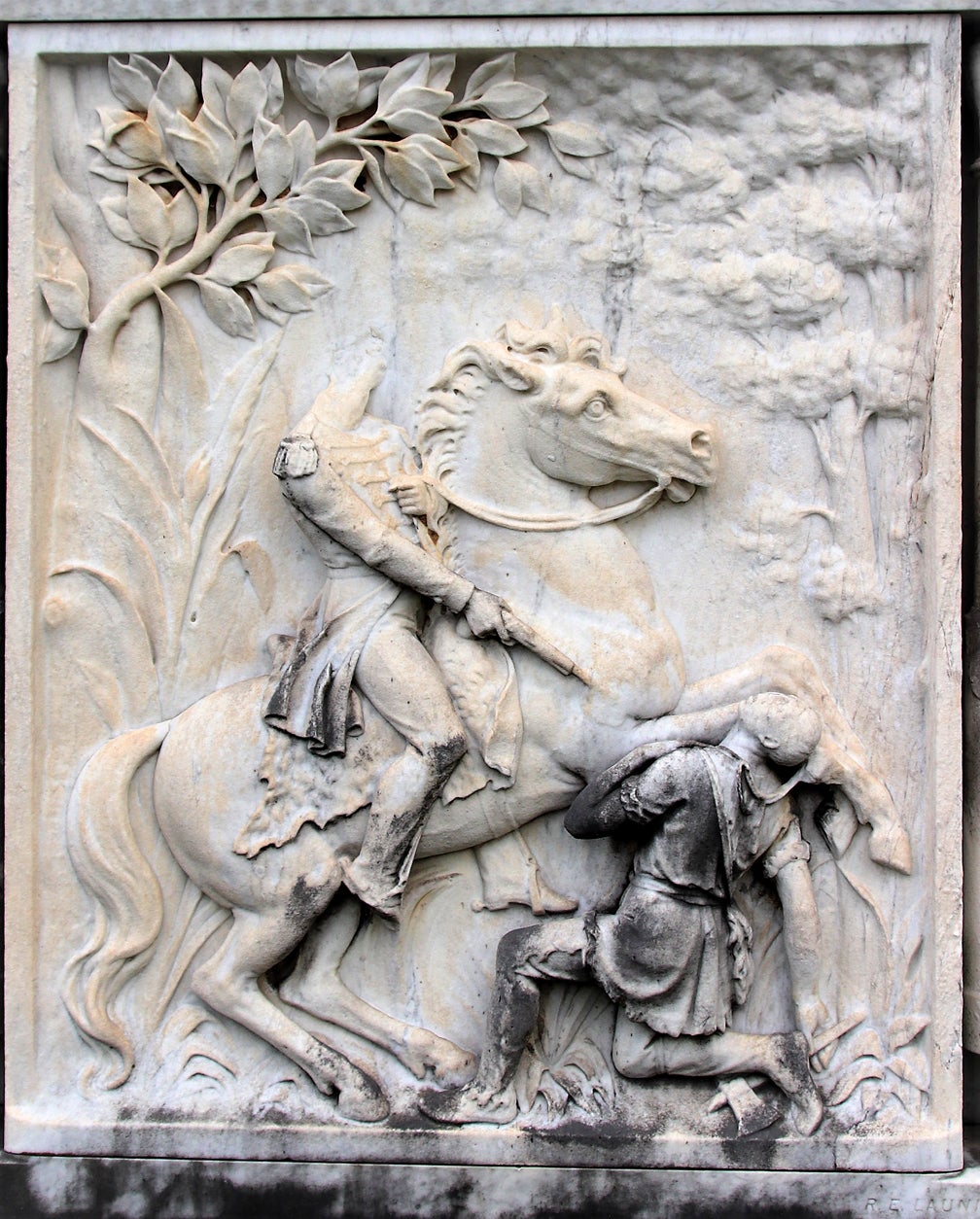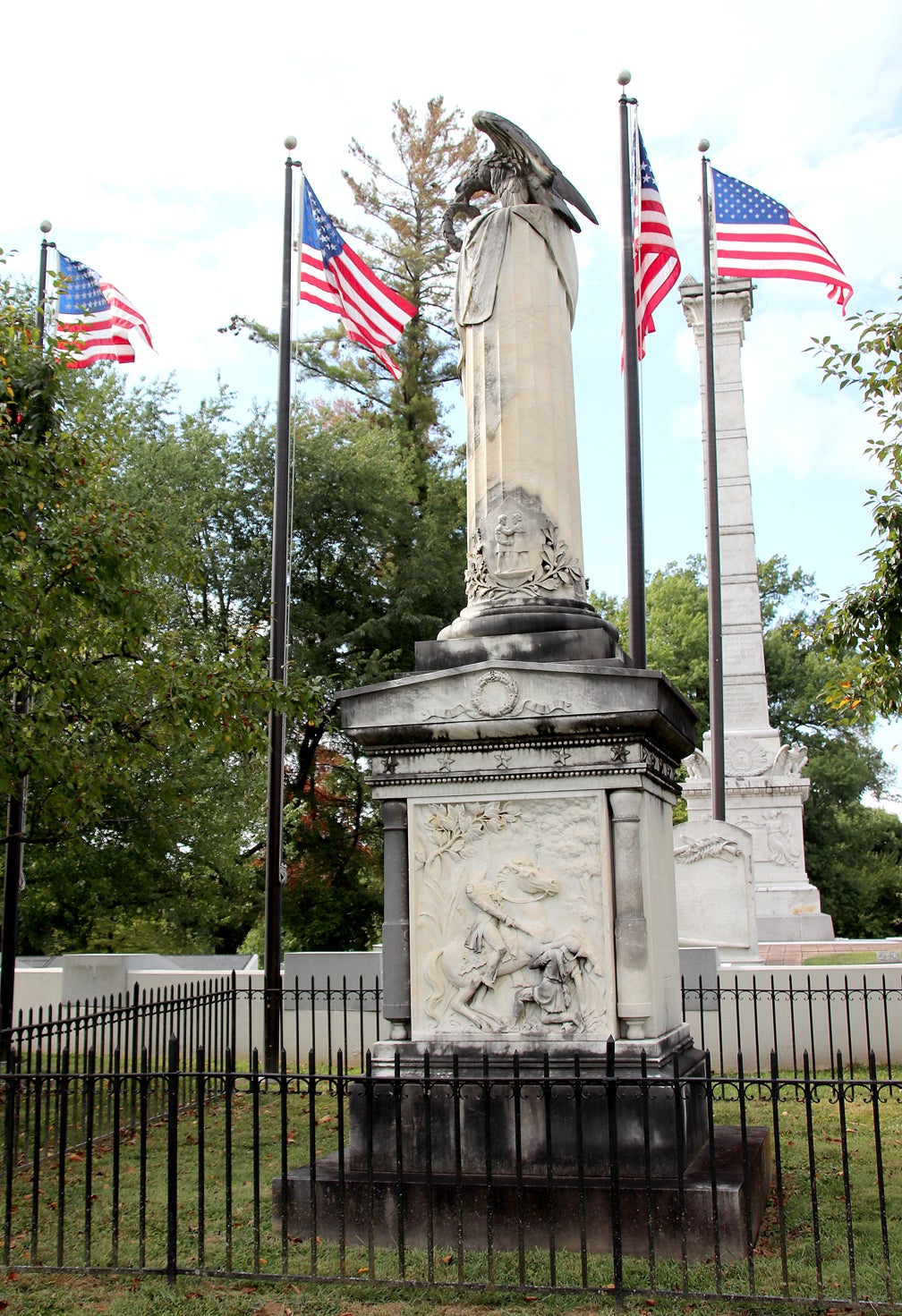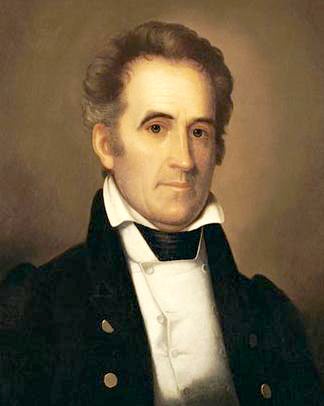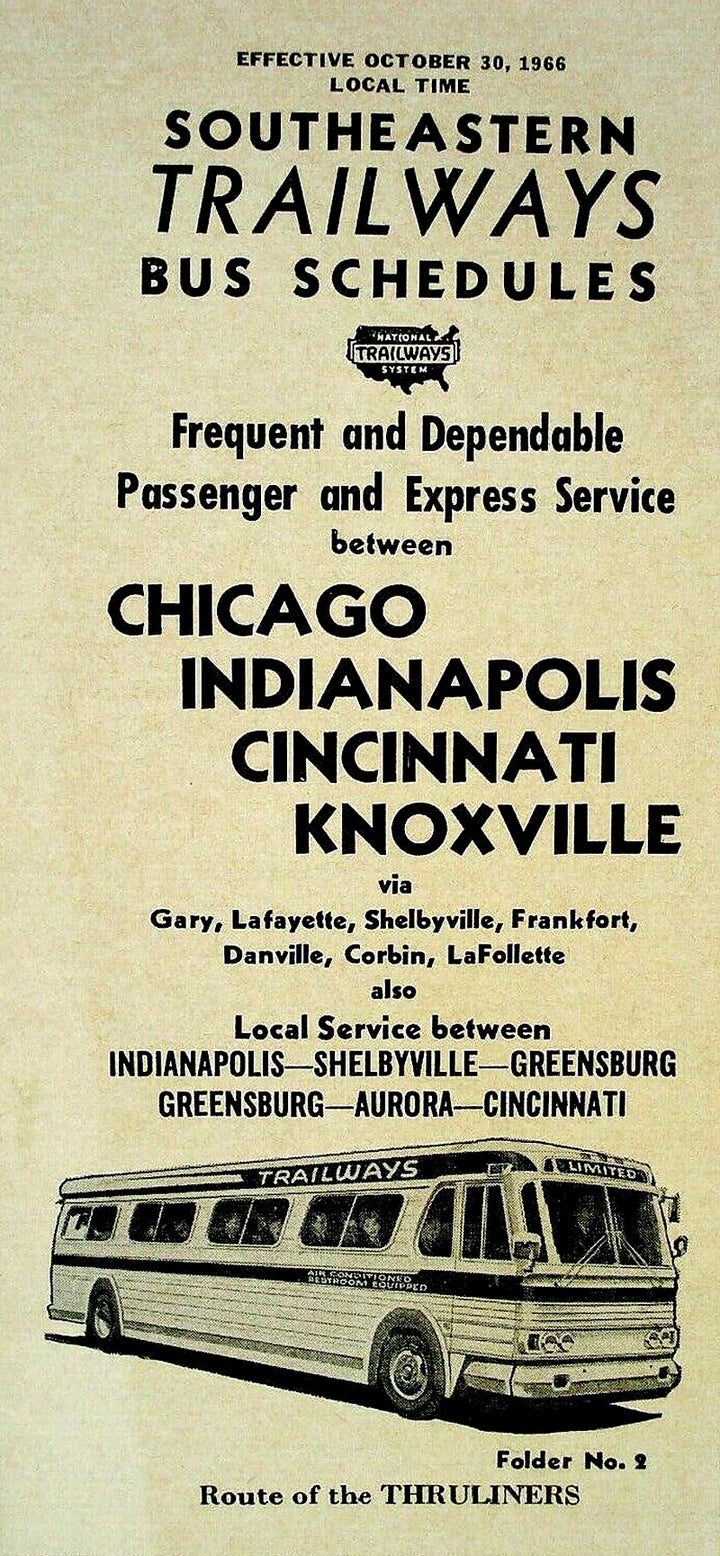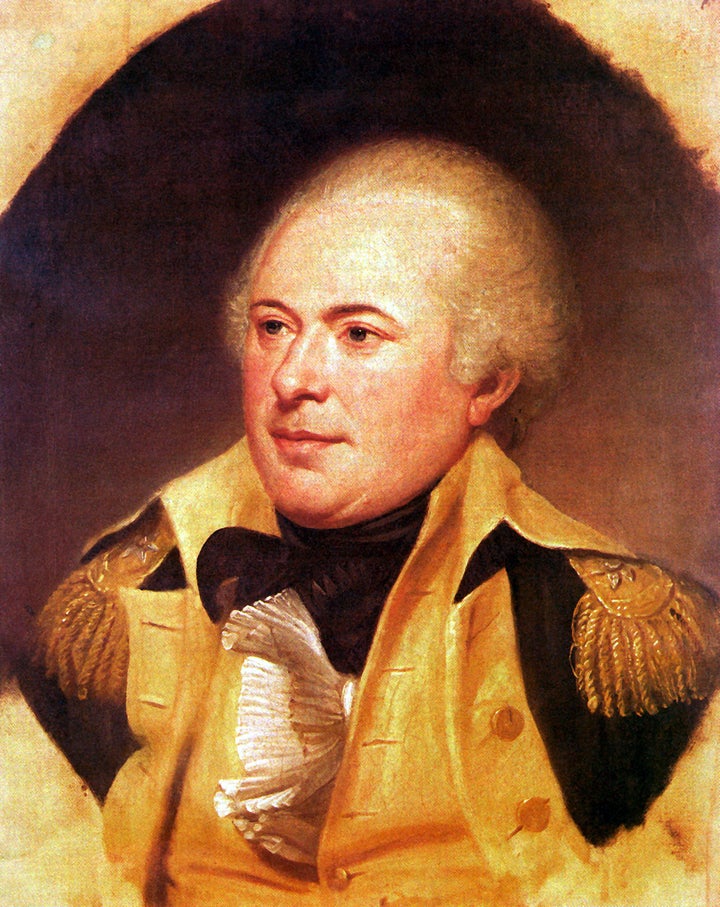By Charles H. Bogart,
A total of 48 men have served as vice presidents of the United States. Two of these men, Richard Mentor Johnson and Alben W. Barkley, were citizens of Kentucky and one died in Frankfort.
Johnson, the first Kentuckian elected vice president, was born on Oct. 17, 1780, near Louisville. However, shortly after his birth, his family moved to Bryant Station in Fayette County. Upon reaching adulthood, Johnson purchased a farm near Great Crossing in Scott County. There, he entered into a relationship with one of his slaves, Julia Chinn, that resulted in the birth of two daughters, Adaline and Imogene.
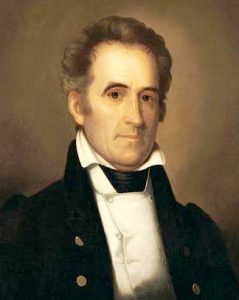
Richard Mentor Johnson
In 1804, Johnson was elected to the Kentucky House of Representatives. This was the first time a person born in the Commonwealth of Kentucky served in the Kentucky legislature. In 1806, he became the first native Kentuckian to serve in the United States House of Representatives. On June 18, 1812, he voted in the affirmative with the other War Hawks in declaring that the United States was at war with Great Britain.
With the declaration of war, Johnson returned to Kentucky to raise a battalion of mounted rifles. This battalion was later expanded to regimental strength and Johnson was promoted to colonel. The regiment, upon being organized, advanced to Fort Wayne, Indiana, to reinforce the fort, which was under attack by a confederation of American Indians. With the dispersal of the American Indians attacking Fort Wayne, Col. Johnson and the mounted rifles returned to Kentucky and demobilized.
In 1813, Col. Johnson raised a new regiment of mounted rifles, and between May and September of that year attacked and burned numerous American Indian villages and their fields of crops in northern Ohio and Indiana. Following the Sept. 10, 1813, defeat of the British Navy by the U.S. Navy in the Battle of Lake Erie, American troops advanced into Canada. The British Army, under the command of Gen. Henry Procter along with his American Indian allies under the command of Tecumseh, retreated eastward from present day Windsor, Ontario, Canada.
On Oct. 5, 1813, Procter, upon reaching the Thames River, was forced to stand and meet the American Army in battle. Col. Johnson led his mounted rifles in an attack upon the American Indians operating under the command of Tecumseh. During the resulting fighting, Tecumseh was killed and Col. Johnson wounded. Popular myth soon had Col. Johnson killing Tecumseh in a one-on-one duel.
However, other soldiers present at the Battle of the Thames later claimed for themselves the honor of killing Tecumseh. In 1818, Congress directed the president of the United States to present Col. Johnson with a sword of merit for his valor at the Battle of the Thames. President James Monroe presented such a sword to Col. Johnson in April 1820.
Col. Johnson served in the U.S. House of Representatives through 1818 when he returned to Kentucky to serve as a representative for Scott County in the Kentucky legislature. In 1820, Col. Johnson was elected to the United States Senate and served as a senator until 1829. In 1829, he returned to the U.S. House of Representatives and, in 1832, stood for his party’s presidential nomination.
His campaign was based on the chant “Rumpsey Dumpsey, Rumpsey Dumpsey, Col. Johnson killed Tecumseh.” This chant, however, could not overcome the ground swell for running Gen. Andrew Jackson as the party’s presidential nominee.
In 1836, when Martin Van Buren ran for president of the United States, Col. Johnson ran as his vice president. While Van Buren received 170 electoral votes, Col. Johnson only received 147, as a number of Southern states, due to Col. Johnson’s common law marriage with the slave Julia Chinn, withheld their electoral votes.
Thus, for the first and only time, a vice president of the United States was elected by a vote of the U.S. Senate. In 1840, when Col. Johnson again sought his party’s nomination for vice president, he was turned away. Col. Johnson was, at this time, starting to show signs of the onset of dementia.
Returning to Kentucky, Col. Johnson sought to return to the U.S. Senate and then to the U.S. House of Representatives. However, the voters recognized that he was not up to the task and cast their votes for his opponents. In his 1848 bid, he also failed to become governor of Kentucky. In 1850, Colonel Johnson regained a seat in the Kentucky House of Representatives but was clearly not up to the task.
The Louisville Daily Journal reported that “Col. Johnson is laboring under an attack of dementia that renders him totally unfit for business. He is incapable of properly exercising his physical and mental powers.”
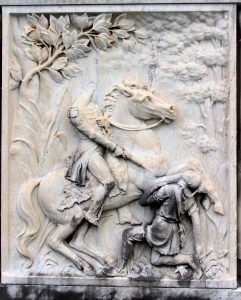
The headless horseman carving on the front of Johnson’s memorial. (Photo submitted)
On Nov. 19, 1850, while in Frankfort, Col. Johnson died of a stroke. After lying in state, Col. Johnson was interred at the State Mound in the Frankfort Cemetery. A suitable monument was later erected over his grave by the Commonwealth of Kentucky.
The front of the monument has a carving of a man on a horse shooting an American Indian with a pistol. The figure on the horse, however, is missing his head. Local legend has it that when the monument was unveiled, the rider’s head had been knocked off because it showed Col. Johnson killing Tecumseh and not the actual person who had really killed Tecumseh.
On Saturday, Dec. 21, the Capital City Museum and Paul Sawyier Library will sponsor a talk on Col. Johnson presented by Dr. Christina Snyder of Penn State University, the author of “Great Crossings: Indians, Slaves and Settlers, in the Age of Jackson.” This event will be held in the library’s River Room.

